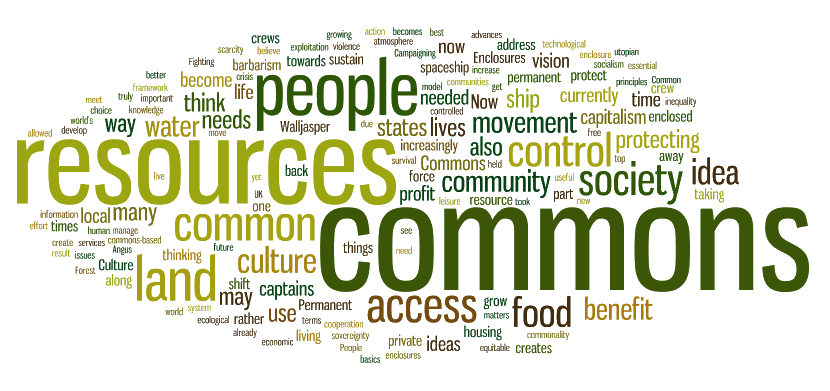New Economy Movement: Difference between revisions
Siterunner (talk | contribs) No edit summary |
Siterunner (talk | contribs) No edit summary |
||
| Line 1: | Line 1: | ||
https://en.wikipedia.org/wiki/New_Economy_Coalition | https://en.wikipedia.org/wiki/New_Economy_Coalition | ||
The New Economy movement is often referred to as just 'new economy'. It considers that the current economic system needs to be restructured. The theory is based on the assumption that people and the planet should come first, and that it is human well-being, not economic growth, which should be prioritized. It draws on an aggregate of alternative economic thought that challenges the fundamental assumptions of mainstream neoclassical and Keynesian economics. Some of the approaches it includes a ecological economics, solidarity economy, commons, degrowth, systems thinking and Buddhist economics. | The New Economy movement is often referred to as just 'new economy'. It considers that the current economic system needs to be restructured. The theory is based on the assumption that people and the planet should come first, and that it is human well-being, not economic growth, which should be prioritized. It draws on an aggregate of alternative economic thought that challenges the fundamental assumptions of mainstream neoclassical and Keynesian economics. Some of the approaches it includes a ecological economics, solidarity economy, commons, degrowth, systems thinking and Buddhist economics. | ||
Revision as of 00:43, 6 July 2016
https://en.wikipedia.org/wiki/New_Economy_Coalition
The New Economy movement is often referred to as just 'new economy'. It considers that the current economic system needs to be restructured. The theory is based on the assumption that people and the planet should come first, and that it is human well-being, not economic growth, which should be prioritized. It draws on an aggregate of alternative economic thought that challenges the fundamental assumptions of mainstream neoclassical and Keynesian economics. Some of the approaches it includes a ecological economics, solidarity economy, commons, degrowth, systems thinking and Buddhist economics.
Gar Alperovitz described the New Economy movement as “... a far-ranging coming together of organizations, projects, activists, theorists and ordinary citizens committed to rebuilding the American political-economic system from the ground up." In 2009, Sarah van Gelder wrote, “The new economy is about increasing quality of life, improving health, and restoring the environment."
○ ○ ○ ○ ○ ○ ○ ○ ○ ○ ○ ○ ○ ○ ○ ○ ○ ○ ○ ○ ○ ○ ○ ○ ○ ○
It is long past time to extend the concept of democracy to our economy... an economic democracy where the people making up the economy decide how the economy works. This must include options for community and worker ownership, where the wage scales, disposition of profits and decisions about technology and environmental impact are made by the people who have to live with those decisions. -- Jill Stein, Green Party candidate for President, July 2016
http://www.garalperovitz.com/2012/05/the-rise-of-the-new-economy-movement/
http://www.thenation.com/article/new-economy-movement/ (2011)
http://www.alternet.org/story/155452/the_rise_of_the_new_economy_movement (2012)
http://www.huffingtonpost.com/gar-alperovitz/the-rise-of-the-new-econo_b_1532549.html (2012)
http://www.yesmagazine.org/new-economy/the-rise-of-the-new-economy-movement
http://www.resilience.org/resource-detail/2353188-weaving-the-community-resilience-and-new (2015)
○
Getting to the Next System: Guideposts on the Way to a New Political Economy by Gus Speth (2015)
http://www.greenpolicy360.net/mw/images/GettingToTheNextSystem_Gus_Speth.pdf
○ ○ ○ ○ ○ ○ ○ ○ ○
Eco-nomics
○
Via Yes! Magazine - David Korten / 2001 ... Reclaiming the Commons
Via Sojourners / 2013 ... Reclaiming the Commons
○
Community-Wealth generation - Democracy Collaborative / ... Reclaiming the Commons
http://democracycollaborative.org/
Resources for practitioners and policy makers working to build community wealth and a new economy
○
June 2014
Gar Alperovitz (note relation to Gaylord Nelson, founder of Earth Day) - Video Keynote at the AAAS Climate Change Summit / American Association for the Advancement of Science's Summit on Climate Change Resilience and Governance
○
Next System Project - http://democracycollaborative.org/content/next-system-project
○
http://democracycollaborative.org/publications
○
Community-wealth generation focus areas:
- Democratization of Wealth
- Community Wealth Cities
- Community Wealth InfoGraphics
- Community Wealth Interviews
- Community Wealth Map
- Wealth Videos
- ○
- Anchor Institutions
- The Cleveland Model
- Community Development Corporations (CDCs)
- Community Development Financial Institutions (CDFIs)
- Land Trusts (CLTs)
- Cooperatives (Co-ops)
- Cross-Sectoral
- Employee Stock Ownership Plans (ESOPs)
- Green Economy
- Individual Wealth Building
- Individual Wealth Preservation
- Local Food Systems
- Municipal Enterprise
- New State & Local Policies
- Outside the U.S.
- Program Related Investments
- Reclaiming the Commons
- Social Enterprise
- Responsible Investing
- State Asset Building Initiatives
- State and Local Investments
- Transit Oriented Development
- University & Community Partnerships
- Worker Cooperatives
○
- Air Quality
- Alternative Agriculture
- Aquifers
- Atmosphere
- City-County Governments
- Clean Water
- Climate Policy
- Earth
- Eco-nomics
- Ecological Economics
- Ecology Studies
- Economic Development
- Economics
- Environmental Protection
- Environmental Security
- EOS eco Operating System
- Food
- Forests
- Green Best Practices
- Green Banking
- Green Business
- Green Infrastructure
- Green Politics
- Green Values
- Health
- Initiatives
- Natural Resources
- Networking
- New Economy
- Oceans
- Permaculture
- Resilience
- Rights of Nature
- Sustainability Policies
- Toxics and Pollution

